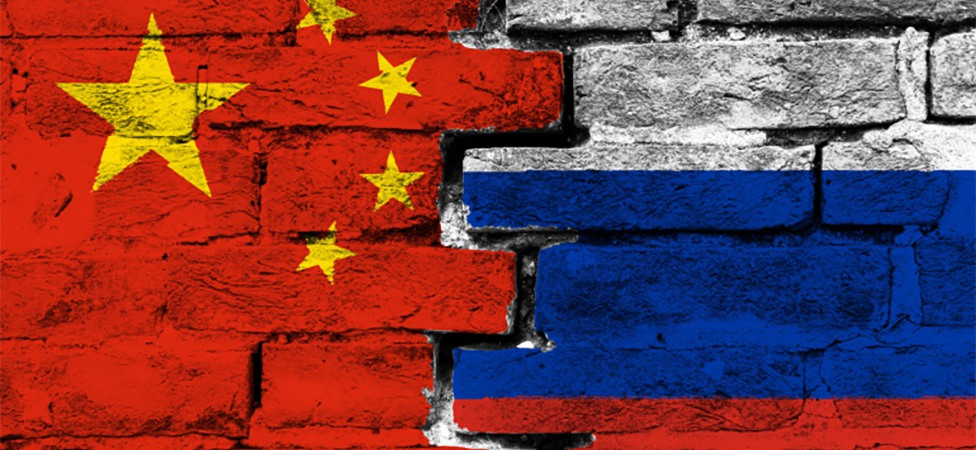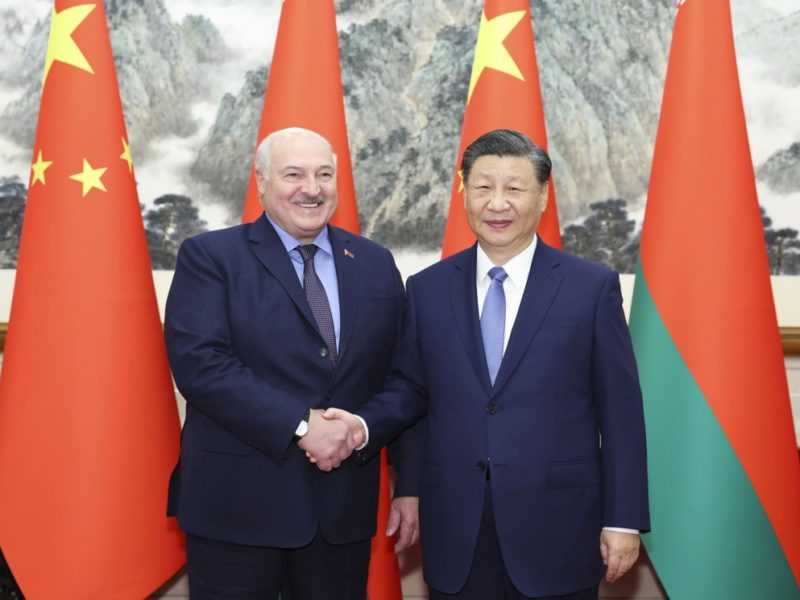From April 5-8, 2023, world’s media focused on Beijing, where French President Emmanuel Macron and European Commission President Ursula von der Leyen met with senior officials from the People’s Republic of China, including President Xi Jinping and Premier Li Qiang. Given the ongoing war between Russia and Ukraine and rising tensions in Sino-American relations, this state visit was thought-provoking. What were the main goals, issues, and outcomes of the visit? I will try to answer these and other questions in this blog.
Emmanuel Macron’s state visit to China started on April 5 with a large delegation including some ministers, lawmakers and nearly 60 CEOs of top French companies. Before leaving France, President Macron also asked the President of the European Commission for a joint visit to show China and the world that the European Union holds the same position on various topics. Ursula von der Leyen accepted the invitation and joined Macron’s state visit to China.
According to the Foreign affairs website of People’s Republic of China President Xi first met with Macron, then held trilateral talks with Macron and Ursula von der Leyen, before meeting with her bilaterally to discuss China-EU relations. Finally, the French president and Mr. Xi held an informal meeting in Guangzhou, focusing on Sino-French relations. In addition, the main topics discussed at the meetings were China-EU economic relations, the war between Russia and Ukraine and China’s role in resolving the conflict.
EU-China Relations and Europe’s Strategic autonomy
The visit was marked by very important and interesting messages from three leaders regarding EU-China relations. First of all, the messages of the Chinese president were not very different. He reiterated the need that “China-EU relations should not be aligned with, dependent on, or dictated by a third party.” It is clear, of course, that when Xi speaks of a third party, he means the United States and wants to strengthen the idea of “dividing” the West. He also criticized the “democracy versus authoritarianism” and the new Cold War era narratives, mentioning that “these only bring division and confrontation to the world.” He goes even further and calls on Europe to stand together with China against “Hegemonism and Unilateralism.“, again directed at the United States.
At the trilateral meeting, President Xi made the idea of exclusive cooperation between the EU and China very clear. While the United States is trying to “decouple” from his country, President Xi reaffirmed that “China supports Europe in achieving strategic autonomy.”
The idea of Europe’s strategic autonomy is not strange for President Macron. The term refers to the EU’s ability to act independently in areas of strategic importance. These areas include defense policy, the economy, technologies and much more. According to some EU leaders, especially in the field of defense, the European Union is very dependent on NATO and the United States. That is why Macron and some other leaders support the idea of strategic autonomy – they want to see the European Union as an independent and strong player on the world stage.
Europe’s strategic autonomy is attractive to China: it is in Beijing’s interest that Europe and the United States be less interconnected. The Chinese government sees this as an opportunity to improve its relationship with the EU. Given the rising economic tensions in Sino-US relations, this goal is especially crucial. That is why President Macron was welcomed by his Chinese counterpart with great pomp and respect. The informal meeting between Xi and Macron in Guangzhou over a cup of tea proved once again that the Chinese president is very interested in cooperation with France.
No to decoupling, yes to de-risking
But Europe’s strategic autonomy is also involving less dependence on China in several areas. On March 30, President von der Leyen gave a speech on EU-China relations to the Mercator Institute for China Studies and the European Policy Centre ahead of her visit to China. In her view, the EU should focus not on “decoupling” but on “de-risking” from China. This message was also repeated by her and shared by Macron in Beijing during the visit.
Where does the idea of “decoupling” come from ? This issue was first discussed in Washington as a response to the heavy economic dependence on China. In relations with Beijing, the United States has taken a tougher stance – since Trump, Washington has pursued a strategy of “decoupling” economic ties with China, and this process continues under the Biden administration. For Europe, it is not realistic to decouple completely from China, but European leaders also know that dependence on Beijing carries high risks. This is why the EU prefers the “de-risking” strategy, which, according to Ursula Von der Leyen, contains several specific ways to deal with the different risks, such as diversifying trade and investment relations, technology transfers, etc.
Russia-Ukraine War
The war between Russia and Ukraine was another central topic of the visit. In this regard, the European leaders stressed the importance of involving China, a member of the UN Security Council, in the “promotion of a just peace”, which respects the sovereignty and territorial integrity of Ukraine. Macron and Ursula wanted to convince XI to use its “special” relationship with Putin to stop Russian aggression against Ukraine, but there was no concrete promise from China in this sense. However, in the meeting with Macron, Xi and his French counterpart agreed that they are opposed to a nuclear war and to escalating the conflict between Russia and Ukraine in that direction.
Another key message sent by Europeans was about arming Russia. As we know, the Biden administration recently stated that China was considering providing lethal aid to Russia; Though It has already been proven that the PRC is only sending non-lethal aid to Russia, including helmets and body armor, but if it decides to send lethal aid as well, it would pose a serious threat to international security. That’s why after the meetings with Xi and Chinese Premier Li Qiang, the president of the European Commission told the media that she had warned China not to supply military equipment, directly or indirectly, to Russia. In addition, Ursula Von der Leyen made it clear that if Beijing decided to arm the aggressor, “this would significantly damage” relations between the EU and China. According to the French diplomat, after Mr. Macron asked Mr. Xi not to arm Russia, President Xi replied that “it was not his war.” When Emmanuel Macron and Ursula von der Leyen left China, the EU’s position on this issue was reaffirmed by the Federal Minister for Foreign Affairs of Germany – Annalena Baerbock. On April 14, during her visit to China and meeting with Chinese Foreign Minister Qin Gang in Beijing, they discussed this issue and the Chinese minister said, “We do not and will not deliver weapons to the conflicting parties at a later date.”
It is clear that for the EU, any Chinese lethal aid for Russia in the war would be seen as crossing the line. In addition, European leaders are asking China to become actively involved in ending the war between Russia and Ukraine, as Beijing is the only country that still has influence over Russia. However, the only concrete consensus during Macron and Ursula’s visit on the Russia-Ukraine war was President Xi’s promise to call Zelensky when the conditions and timing are right.
Taiwan issue
The high-level EU-China state visit obviously did not take place without the issue of Taiwan. On this subject, the President of the European Commission, Ursula Von der Leyen, was more critical. Both she and Macron reaffirmed their loyalty to the “one-China policy”, but Macron tried to avoid discussing critical issues with Xi, such as Taiwan and China’s human rights violations, while Ursula, on the Taiwan issue, mentioned that “the threat to use force to change the status quo is unacceptable“.
On his departure from China, Emmanuel Macron took questions from the French press on the plane, and his answers on the issue of Taiwan were controversial. In particular, he told the media that Europe ran a “great risk” of being involved in crises “that are not ours,” which would make it more difficult to build the EU’s strategic autonomy. He goes even further and said that “The worse thing would be to think that we Europeans must become followers on this (Taiwan) topic and take our cue from the U.S. agenda and a Chinese overreaction.” These statements became the main topic of the world’s media after China began large-scale military exercises around the island of Taiwan, just hours after the French president left Guangzhou to return to Paris. Macron’s views on Taiwan have been welcomed in China, but of course were criticized by some European policymakers. Annalena Baerbock’s statements on the issue show that Macron’s views are not shared by all European leaders. Indeed, during her visit to China on April 12, she condemned the recently launched military exercises around Taiwan and said Germany “cannot be indifferent” to the escalating tensions.
Other important results of the visit
While Emmanuel Macron was in China with CEOs of major French companies, it was clear from the beginning of the state visit that he was in Beijing to strengthen economic relations with China. Macron has signed several agreements for French companies in sectors such as pork, wind power, cosmetics and civil nuclear power. During this visit, France and PRC also issued a 51-point joint declaration on cooperation in various fields ranging from security to culture. The President of the European Commission also stressed the importance of continued cooperation between China and the EU on climate change and other common goals, but as she focused on “de-risking” for the EU economy, she did not sign a concrete agreement in Beijing.
Conclusion
In conclusion, we can say that the joint visit of Macron and Leyen to China was an attempt by European leaders to show their unity with regard to the EU’s foreign policy towards Beijing. It is true that on some issues, Macron acted more like a “good cop”, while Ursula chose a “bad cop” stance and at times criticized Chinese policy on several issues, including Taiwan and human rights in the Xinjiang region. However, the two EU leaders did manage to agree on two key messages: On the Russia-Ukraine war, they told President Xi that arming Russia would significantly damage EU-China relations and China should be actively involved in ending the war. Regarding EU-China relations, their message was that the EU does not follow the U.S. strategy of “decoupling” and prefers to “de-risk” from China. Time will tell if this strategy is effective or not.

Giorgi Khachidze – Author of the Blog, Intern, Civic IDEA




